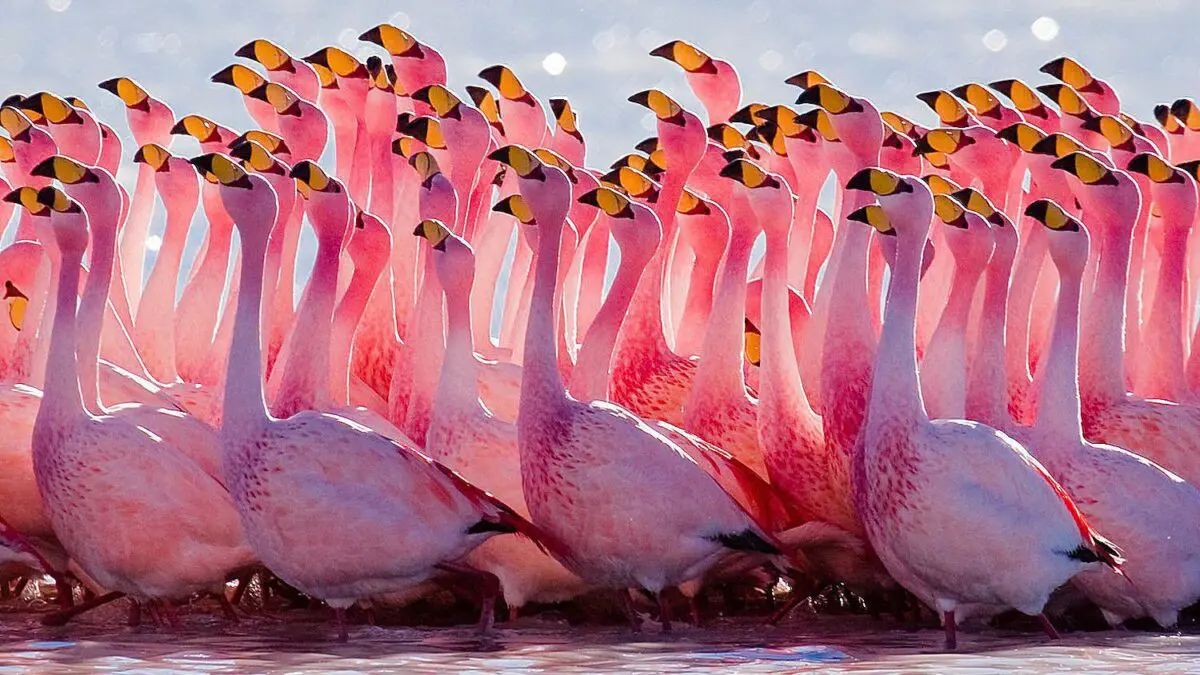Hundreds of flamingos were found dead last week in a dried-up area of Lake Tuz (Salt Lake) in the central Turkish province of Konya.
The lake – the second largest in Turkey and one of the largest hypersaline lakes in the world – is one of the favorite habitats of migratory animals and has long been a place for hatching flamingos. Although it is shallow and has little rainfall throughout the year, its salty nature favors the nesting of migratory birds. However, the drought caused by climate change has reduced the lake’s waters, making food a challenge for flamingos.
Hundreds of birds have now been scattered among the lake in the Konya district of Jihanbeyli. The birds had arrived at the lake in March for their incubation season. Mehmet Emin Öztürk, a nature photographer who is a frequent visitor to the area in the summer, says Lake Tuz was “a paradise for flamingos, but has now become a nightmare”.
“It was a wetland where you could see hundreds of flamingos last year. This time there is no water or live birds. The water receded in a section of about 10 km, “he told the Ihlas Haber news agency.
Bird watchers say 5,000 to 10,000 flamingos are born each year during Lake Ace’s hatching season. So far, only 5,000 have hatched. Fahri Tunch, another photographer, says most birds have died from drought. Tunc told the Demiroren news agency that the excessive use of water from the lake for irrigation was also to blame for the reduction in water levels.
Efforts are being made to promote new irrigation techniques that save water in the region.
The Konya district administration said a commission of experts was investigating “the causes of the flamingos’ deaths and potential measures to prevent the problem.”
However, the situation is not limited to Lake Tuz. Drought, along with pollution, has also been cited as a major cause of recent mass seagull deaths in lakes near Istanbul and the eastern province of Van.
Temperatures in the country are constantly rising due to climate change, which leads to a significant reduction in water resources. Experts warn that a water crisis is expected in Turkey over the next decade.
Professor Doanai Tolunai of Istanbul University warns that the dry season continues in the inner Anatolian region, where Konya is located, as well as in eastern Anatolia from 2020. Tolunai said the two regions received very low rainfall last year – around 350 mlm., and the situation is particularly difficult for agriculture.
Professor Murat Turkes of the Center for Climate Change and Policy Research at Boazici University said that
“In fact, climate modeling shows that 60% of the land, with the exception of the Black Sea region and parts of southern Turkey, has an annual water shortage. “Obviously, we will have a serious water crisis in the next ten years,” he said.







